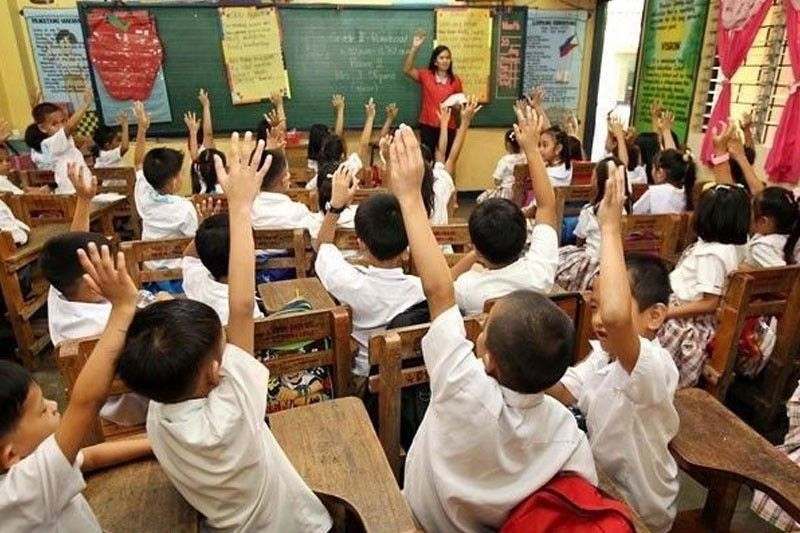PHL told to adjust school year amid record heat

THE PHILIPPINE Senate president on Monday urged education officials to return to a June to March academic calendar instead of August as the state weather bureau warned that 36 areas faced dangerous heat levels of 42-47ºC.
“Aside from exposing our students and teachers to the dangers of extreme heat, I honestly believe that the prevailing weather conditions during summer are not conducive to learning,” Senate President Juan Miguel F. Zubiri said in a statement. “The August calendar has proven to be disruptive to our education system, and even dangerous to the health of our children and school staff.”
The Philippine Atmospheric, Geophysical and Astronomical Services Administration or PAGASA said Dagupan City in Pangasinan was expected to experience 46C-47ºC in the next two days. In Metro Manila, Pasay City was expected to post a heat index of 43-44ºC.
Heat cramps and exhaustion are likely, while heat stroke was probable with continued exposure to temperatures of 42-51ºC — considered dangerous — the agency said on its website.
Iba, Zambales in northern Philippines posted the highest temperature of 53ºC on April 28 after four straight days of registering a heat index of 42-43ºC. Its temperature was expected to drop back to 42ºC on Monday.
PAGASA said Laoag City, Tuguegarao City and Baler in Aurora province were expected to post a 45ºC heat index on Monday. Casiguran in Aurora, Sinait in Ilocos Sur, Dumangas in Iloilo, Aborlan in Palawan, San Jose in Occidental Mindoro and Coron in Palawan were expected to experience temperatures of as much as 44ºC.
Mr. Zubiri told reporters he had withdrawn a bill he filed in 2022 seeking to synchronize the country’s academic school calendar to August. “In an ideal world, we do want to be in sync with international school calendars to give our students a better chance at getting into programs abroad,” he said.
The Department of Education suspended face-to-face classes in all public schools nationwide on April 29 and 30 due to extreme heat caused by the El Niño weather event.
The Senate basic education committee is set to look into the dangers of extreme heat on students this week, Senator Sherwin T. Gatchalian, who heads the body, said in a separate statement. He said a remote learning setup might make it difficult for students who do not have internet access at home.
“There are parents who are not in favor of online or blended learning since their children do not learn and the parents themselves answer textbooks or workbooks for them,” Mr. Gatchalian said in Filipino. “It seems that parents are more in favor of face-to-face classes. All of these we will balance.”
Mr. Zubiri also called on the Agriculture and Science and Technology departments to look into cloud seeding as rivers dried up due to extreme heat and drought.
“Our appeal to the Department of Agriculture is to continuously monitor the situation especially livestock production, not just the crops,” he said. “We’re hoping that the entry of the rainy season comes sooner rather than later because many of our farmers are suffering.”
Farm damage caused by El Niño had reached P4.39 billion as of April 23. — John Victor D. Ordoñez and Norman P. Aquino



